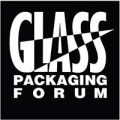Media Release
Plan for lower emissions, more effective and cheaper glass recycling
6 October 2022
The Glass Packaging Forum (GPF) has unveiled a plan to improve glass recycling which is cheaper and more convenient for consumers than the proposed container return scheme (CRS), and better for the environment with less than half the emissions of the status quo or the CRS.
The GPF’s Scheme Manager Dominic Salmon says the proposal, commissioned from independent consultants Grant Thornton, could achieve an 87% recycling rate within 5 years.
“We already have a high recovery rate for glass bottles and jars in New Zealand but we can get it to 90% or more with 87% of that recycled within five years, through a fully industry funded Extended Producer Responsibility (EPR) scheme which has industry on board,” he says.
Grant Thornton’s report says the scheme will cost consumers just under half the cost of a CRS on a 12 pack of beer, at most 67.7c per 12 pack of beer compared with $1.43 for the proposed CRS. It also enhances the existing kerbside system for both bottles and jars, saving consumers from transporting their bottles to a supermarket for recycling as proposed by the CRS.
The report’s lead author Michael Worth said their work was guided by circular economy principles.
“We aimed to design a scheme which prioritises the most circular outcomes for glass and the best emissions profile. Despite aiming to collect more glass, our modelling of the proposed CRS showed reductions in the quality of glass which could end up recycling less glass back into bottles, the key circularity measure,” he says.
Dominic says the GPF has consistently requested glass be excluded from any CRS in New Zealand because it’s not the best way to increase its recovery and recycling rate. “The proposed CRS was designed as a one-size-fits-all solution. We believe glass requires a different approach and Grant Thornton’s work reiterates that with far lower emissions,” he says.
In other countries such as England and Northern Ireland, glass is being excluded from container return schemes (also known as bottle return schemes) and will be managed through an EPR scheme instead due to the impact on emissions, he says. “Many European countries achieve high recovery and recycling rates for glass through industry-funded schemes, such as the one we are proposing, so it’s a proven concept.”
The report has been submitted to Government for feedback, Dominic says. “It is a valuable contribution to the conversation on improving New Zealand’s glass recovery and recycling rates while reducing emissions. We urge the Minister for the Environment and the Ministry to take this report into account.”
View our submission on the Transforming Recycling consultation
